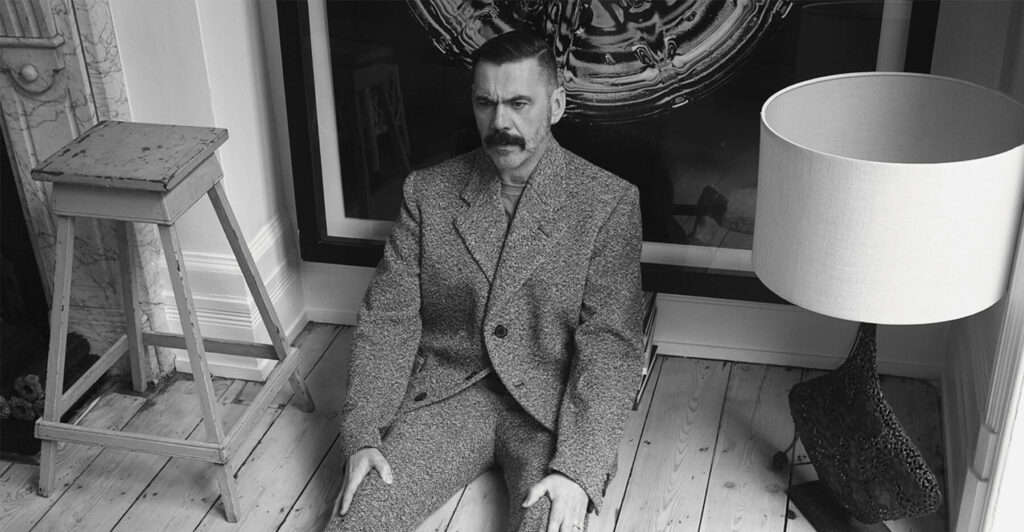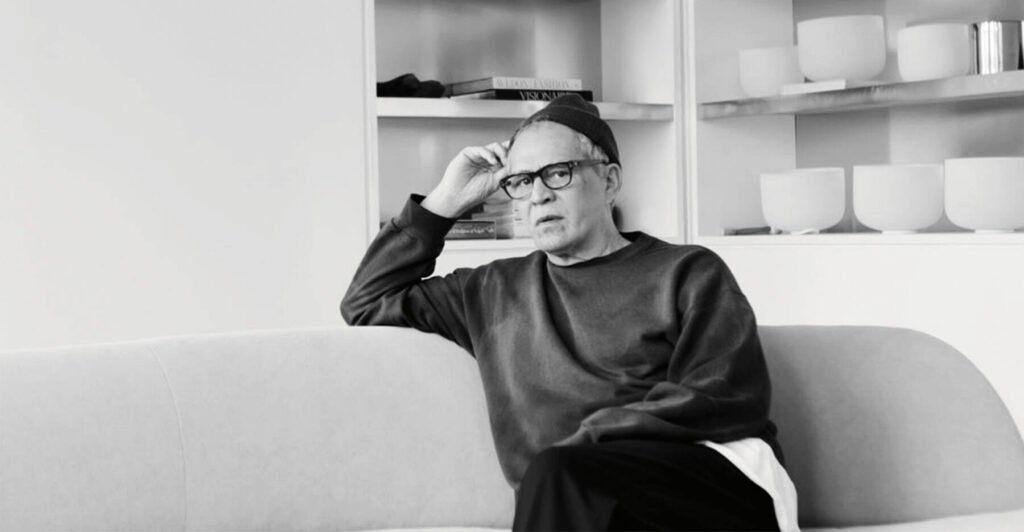Gaelle Halloo Lang
Why is it important for you to centre sustainability at the heart of your creative practice?
I believe that fashion creation today must strive to be as sustainable as possible. Firstly, because it’s the right thing to do. Secondly, customers, particularly younger generations, place immense value on sustainability. To achieve success, we must integrate it into the core of our operations, rather than treating it as a mere marketing gimmick. Thirdly, and most importantly, sustainability acts as a constraint that can open up new creative avenues. As young creators, it is our generation’s responsibility to establish innovative ways of working.
Incorporating sustainable practices into your collection is a key qualifier for the Mercedes-Benz Sustainability Prize – how did you find this and what did you learn in the process?
For my collection, the process of ‘how to do it’ was just as crucial as ‘what to do’. Throughout my creative reflection, I consistently considered whether I could produce each garment sustainably, weighing the consequences of different methods. When the process wasn’t sustainable, I made compromises and discovered that these adjustments often led to creative breakthroughs and connections with people who could support my journey.
What are the challenges you faced incorporating these sustainable practices and how did you go about overcoming them?
The biggest challenge was creating a streetwear collection where most fabrics are typically synthetic. With hype cycles becoming shorter, synthetic fabrics are often more convenient. I aimed to use natural fabrics instead, primarily recycled, and sourced within the EU or my local region when possible. I collaborated with partners like Mos’laine and Alyeska Industries in Moselle to produce wool garments locally and sustainably. To integrate second-hand pieces, such as F.C. Metz football jerseys, I had to rethink garment cutlines, which opened new creative avenues. Using 3D apparel design software helped ensure the first prototype was perfect, minimizing fabric consumption.
The Sustainability Prize is supported by Mercedes-Benz, who led some mentorship sessions in springtime – why is it so important for organisations like Mercedes-Benz to support the drive for sustainable practices in fashion?
The automobile and fashion industries have historically had significant negative impacts and are now recognizing this. As a global brand, Mercedes-Benz can and should lead the charge in driving a global mindset change. Known for pushing creative and technological boundaries, Mercedes-Benz balances sustainability, performance, and comfort in the automobile industry. The fashion industry, particularly streetwear, is on a similar journey and can benefit from shared creative breakthroughs while influencing customer mindsets and habits.
Why are platforms like Hyeres so important when it comes to supporting young designers?
Being selected for the Hyeres festival offers a unique opportunity to professionalize and expand our network. Beyond the visibility it provides, the support and advice from the Villa Noailles organization and its partners leading up to the show have a lasting impact on my career. Whether learning how to stage a runway show, adopting new sustainability practices, or receiving coaching to become better creators and entrepreneurs, it has all been invaluable. Accessing the network this institution offers and receiving ongoing advice and support is a true game-changer.



